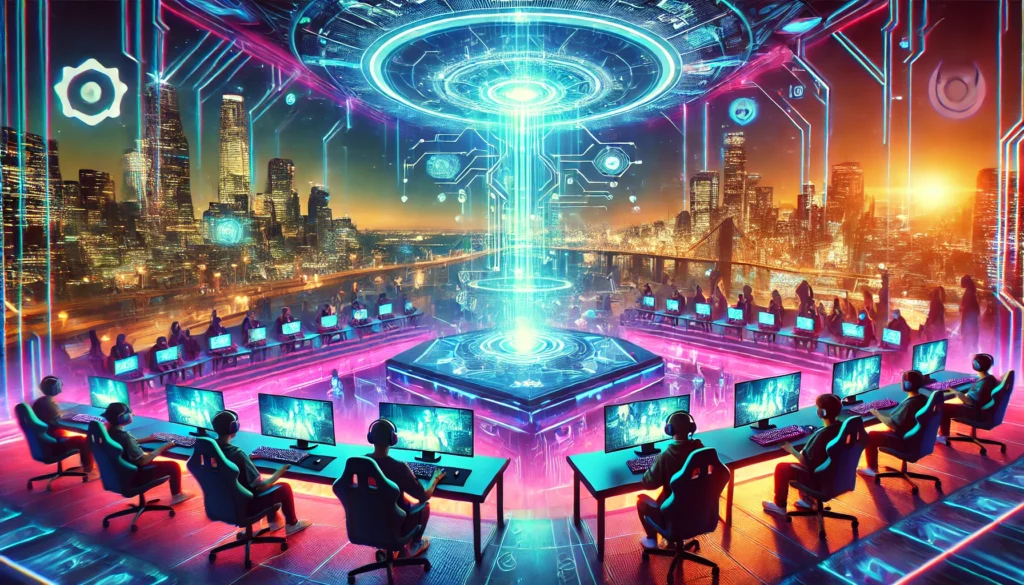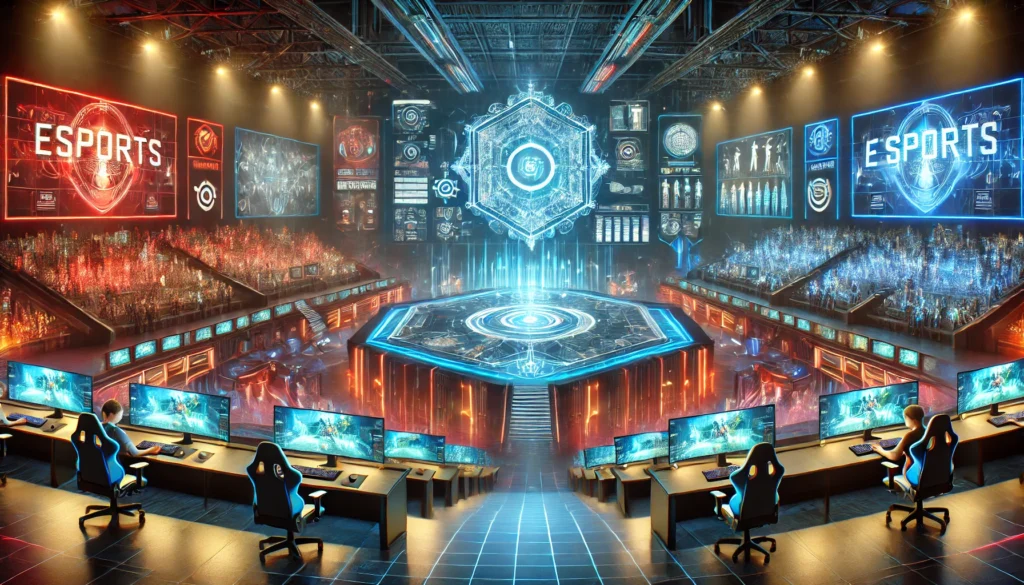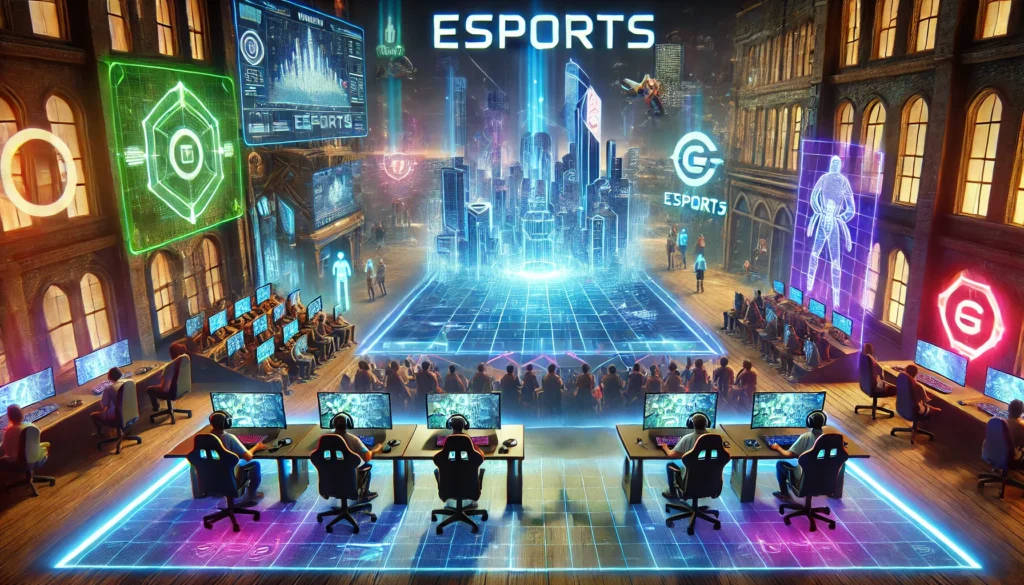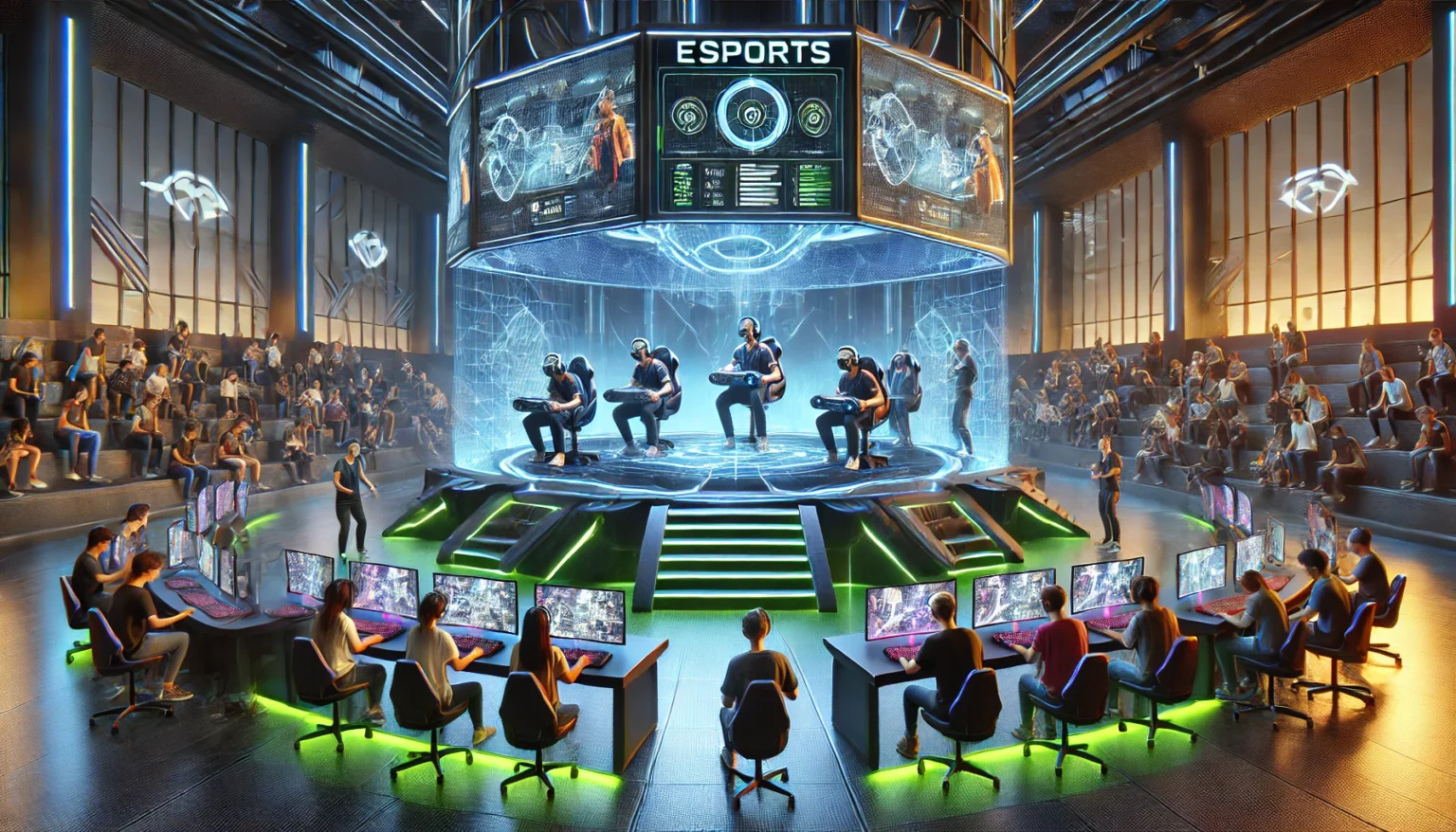Tech Etruesports, often referred to as electronic sports or esports, is the world of competitive video gaming. In this realm, professional players and teams compete against each other in various game genres, such as real-time strategy (RTS), first-person shooters (FPS), and multiplayer online battle arenas (MOBA). Esports has transformed from a niche hobby into a global phenomenon, becoming a central part of modern entertainment, drawing millions of viewers and creating new opportunities in technology, business, and culture.
History of Tech Etruesports
Esports has a rich and fascinating history, with its roots dating back to the 1970s.
- Early Beginnings: The first recognized competitive video game event took place in 1972 at Stanford University, with a game called “Spacewar.” This early competition marked the beginning of a growing trend of video gaming tournaments. Throughout the 1980s, arcade games became the focal point of competitions, often in local or regional settings.
- Growth in the 1990s: As the internet grew in popularity, so did online multiplayer games. The 1990s witnessed a significant shift in esports, with games like “StarCraft” and “Counter-Strike” gaining international popularity. These games became the foundation for the competitive gaming scene, and global tournaments began to emerge, connecting players and fans from across the world.
- Modern Expansion (2000s–Present): Esports exploded in the 2000s and 2010s, with large-scale tournaments like the World Cyber Games and Electronic Sports World Cup. Streaming platforms like Twitch also played a critical role, allowing fans to watch their favorite players and events in real-time. These advancements led to significant growth in viewership, sponsorships, and media coverage, establishing esports as a mainstream industry.
Key Components of Tech Etruesports
- Hardware: To compete at the highest level, professional gamers rely on powerful hardware. This includes high-performance gaming PCs, consoles, and peripherals such as specialized keyboards, mice, and headsets. These devices are designed for precision, speed, and durability, helping players perform at their best. Advanced monitors with high refresh rates ensure smooth gameplay and a competitive edge.
- Software: Esports thrives on popular game titles like “League of Legends,” “Dota 2,” “Fortnite,” and “Counter-Strike: Global Offensive.” These games are continuously updated to ensure fair competition and maintain player interest. Streaming software like OBS Studio and Twitch enable gamers to broadcast their gameplay to global audiences. Anti-cheat systems also play an important role in maintaining fairness in tournaments and competitions.
- Connectivity: Fast and reliable internet is crucial for esports. High-speed broadband and emerging 5G networks ensure smooth, lag-free gaming experiences. A stable connection is essential for both online gameplay and streaming, making it possible for players to compete in global tournaments from anywhere in the world.
The Esports Ecosystem
- Players and Teams: Esports players are often seen as celebrities, with many achieving significant fame due to their skill and success. Professional esports teams, like Team Liquid and Cloud9, have sponsors and managers, and players are often required to train intensively, sometimes resembling athletes in traditional sports. Teams compete in tournaments for large prize pools, sponsorships, and recognition in the gaming community.
- Tournaments and Leagues: Esports tournaments are major events where the best teams and players from around the world come together to compete for large cash prizes. Notable tournaments include The International (for Dota 2) and the League of Legends World Championship. These events attract thousands of spectators both in-person and online, and often feature live broadcasts, commentary, and entertainment. Leagues like the Overwatch League and the League of Legends Championship Series (LCS) have helped to further solidify esports as a professional sport.
- Spectators and Fans: A large portion of esports’ success can be attributed to its fans. Streaming platforms like Twitch and YouTube Gaming allow viewers to watch live events, interact with their favorite players, and engage with the community. Esports has fostered global fan communities that are passionate about the games and players they follow. These communities help to create an engaging and immersive experience for fans.
Economic and Social Impact
- Revenue Streams: The esports industry generates revenue through various channels, including sponsorships, advertising, media rights, ticket sales, and merchandise. High-profile tournaments attract significant sponsorships from major companies, and broadcast rights bring in substantial revenue. Prize money for esports tournaments can be in the millions, with The International 2022 offering a prize pool of over $40 million.
- Employment Opportunities: Esports also provides many employment opportunities. Aside from professional players, there are roles for coaches, analysts, event organizers, commentators, streamers, and content creators. The industry also creates jobs in areas such as marketing, public relations, and broadcasting.
- Cultural Influence: Esports has a profound cultural impact, particularly among younger generations. It has transformed video gaming from a hobby into a competitive and professional endeavor. Moreover, esports has become a global connector, uniting people from diverse backgrounds around a shared passion. Gender and geographical diversity are on the rise in esports, with increasing participation from women and fans across the world.
Technology Driving Esports Growth
- Innovation in Hardware: The rapid evolution of gaming hardware has driven advancements not only in esports but also in related fields such as virtual reality (VR), artificial intelligence (AI), and augmented reality (AR). Companies are constantly improving GPUs, CPUs, and gaming accessories to ensure the best experience for gamers.
- Streaming Platforms: Platforms like Twitch, YouTube Gaming, and Facebook Gaming play an integral role in the growth of esports. They provide a space for players to stream their gameplay, interact with fans, and even monetize their content. These platforms are essential for building an esports community and creating global audiences for events.
- VR and AR Integration: Virtual reality and augmented reality are beginning to influence esports. While still in early stages, these technologies offer the potential to create more immersive gaming experiences, enabling players and spectators to engage with games in new and exciting ways.
Challenges in Tech Etruesports
- Cybersecurity: Like many industries, esports faces cybersecurity threats, including hacking and cheating. To ensure fair play, developers have introduced anti-cheat measures, but the industry continues to face challenges in protecting data and maintaining integrity in competitive settings.
- Health Concerns: Long hours of gameplay and intense competition can lead to physical and mental health issues for players. Esports organizations are increasingly focusing on player well-being, with some providing mental health support, physical training, and rest periods to ensure longevity in players’ careers.
- Regulation and Governance: As esports becomes more mainstream, the need for clear governance and regulation grows. Ensuring fair play, preventing corruption, and creating ethical guidelines are challenges that esports organizations and governing bodies must address.
Future of Tech Etruesports
- Technological Advancements: The future of esports is closely tied to technology. AI-powered analytics, real-time data collection, and improvements in virtual and augmented reality are just some of the innovations that will continue to shape the industry.
- Expansion of Audience: Esports is no longer just for gamers. It is attracting a wider audience, including people who are not typically interested in gaming. The accessibility of streaming platforms has made it easier for anyone to become a fan of esports, regardless of whether they play the games themselves.
- Potential for Education and Training: Esports offers more than just entertainment. It is increasingly being integrated into educational programs, offering students the chance to learn about gaming, technology, and teamwork. Esports academies are becoming common, and universities are offering esports scholarships to talented players.
Conclusion
Tech Etruesports is a dynamic and rapidly growing industry that brings together competitive gaming and technology. With advancements in hardware, streaming, and connectivity, esports continues to evolve, becoming an integral part of modern entertainment. The economic, cultural, and social impacts of esports are undeniable, and as technology continues to progress, esports will likely continue to shape global culture and entertainment for years to come. Whether you’re a player, a fan, or a viewer, there’s no denying that esports is here to stay.
FAQs
What makes esports different from casual gaming?
Esports involves organized, professional competitions with structured tournaments, leagues, and prize money, unlike casual gaming, which is more recreational.
Can anyone watch esports, even if they don’t play games?
Yes, esports is accessible to all viewers, with commentary and broadcasts designed to engage both gamers and non-gamers alike.
What skills do esports players need besides gaming?
Esports players need strong communication, teamwork, strategy, and quick decision-making skills to excel in professional competitions.
How do esports events generate revenue?
Esports events earn revenue through sponsorships, advertising, ticket sales, merchandise, and media rights from broadcasts.
Are esports recognized as a sport?
Yes, many consider esports a sport due to its competitive nature, physical and mental demands, and global organization, similar to traditional sports.











